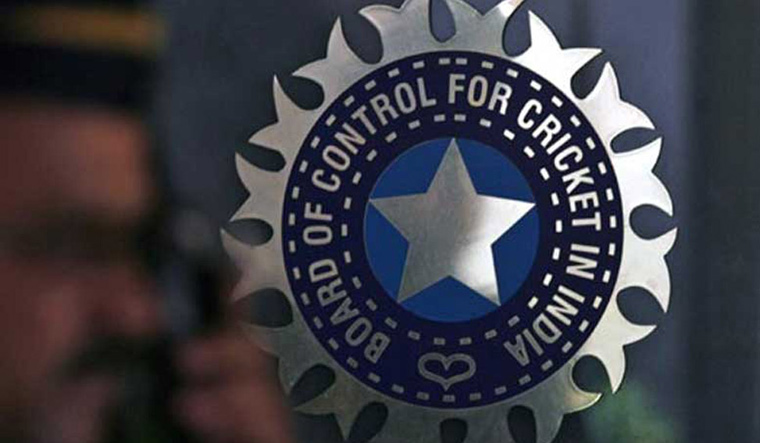The much awaited Supreme Court order on age, tenure and cooling-off norms applicable to the members of BCCI has left many hopeful candidates stumped. The three-judge special bench of the SC comprising of Chief Justice of India Dipak Mishra, Justice A.M. Khanwilkar and Justice D.Y. Chandrachud rolled back the stringent 'one-state, one-vote' rule, which was originally recommended by the Justice R.M. Lodha committee, allowing “legacy” state associations like Gujarat, Saurashtra, Baroda, Mumbai, Vidharba and Maharashtra to retain their full member status and voting rights. Government institutions—Railways, Services and All India Universities—too retained their full member status which was stripped from them in the committee's recommendations. However, Cricket Club of India and National Cricket Club were not given the same relief.
The apex court on Thursday ordered the Committee of Administrators to register the new draft with the Tamil Nadu Registrar of Societies and ensure compliance of the same in all state associations and BCCI within four weeks of the order. If all things go as per the plan, then BCCI's newly elected and structured body will be in place by September 2018, over an year and a half since the court appointed administrators to run the sport in the country.
The new SC order also refused to relax the age cap of 70 years for members. But it is the cooling-off period, both in the past and current orders, that has hit the cricket administrators hard.
The cooling-off clause shall now constitute a continued tenure of six years in the board or state association or both, followed by a mandatory cooling-off period of three years. “There shall be a cooling-off period of three years after an individual has held the post of an office bearer for two consecutive terms, either in a state association or in the BCCI or a combination of both. An office bearer who has held any post for two consecutive terms either in a state association or in the BCCI (or a combination of both) shall not be eligible to contest any further election without completing a cooling-off period of three years. During the cooling-off period, such an office bearer shall not be a member of the governing council or of any committee whatsoever of the BCCI or of a state association.”
As per the new order, even current office bearers may become ineligible. This also nixes plans of a vast group of existing state associations and BCCI officials from running for the elections. These include acting secretary Amitabh Choudhary, treasurer Anirudh Chawdhry, a host of BCCI luminaries like Rajeev Shukla, Jyotiraditya Scindia, N. Srinivasan, Niranjan Shah. Former BCCI president Anurag Thakur, who has filed a plea in the court to lift the ban on him, too stands more or less disqualified as per this criteria. He was “elected” as the joint secretary for three years and thereafter served as an elected secretary and president for a total period of three years.
“This is not a dilution but a more severe order,” said a powerful board member on condition of anonymity. “An entirely new group of people will now come in and run the board. The BCCI is on a brink of disaster,” he added.
However, there will be efforts to ensure that the old guard still holds some sort of control over the board by putting up candidates of their choice wherever they can during elections. As per the current equations, N. Srinivasan group still has the largest chunk of voters with it, but the Shashank Manohar group and the newly formed northeast states bloc could be the deciding factors.
Noted sports lawyer Nandan Kamath told THE WEEK that, “this is not a significant dilution of the reforms as was feared. It is rather a very positive clarification made by the court... I don't see any relief to be honest”.
Chairman of the COA, Vinod Rai described this as an excellent order.
The Supreme Court bench made it clear that while it agrees to the continuity to a certain extent, the primary motive of ensuring no concentration of power and vested interests, remains to be the guiding priciple for the cooling-off norm.
“Dispersal of authority is a necessary safeguard to ensure against the perpetuation of power centres. Individuals who administer the game of cricket must realise that the game is perched far above their personal interests. Important as experience in administration is, it is far-fetched to assume—and far more difficult for the court to accept—that experience rests on the shoulders of a closed group of a few individuals. In fact, opportunities to a wide body of talent encourage a dispersal of experience and democratisation of authority.”
To ensure further that no back door entry was made by former office bearers in key committees, the SC also clarified that, “The expression ‘office bearer’ should not be permitted to be circumvented by being a member of any other committee or of the Governing Council in BCCI or any state association, as the case may be.”
An office bearer will continue to have a maximum tenure of nine years in the state association or BCCI.
The court further added that, “in the event that any State Association does not undertake compliance with the aboves aid directions, the directions contained in the orders of this Court dated 7 October 2016 and 21 October 2016 shall revive.” These relate to the withdrawal of any financial aid by BCCI to state associations via subsidy or dues.


